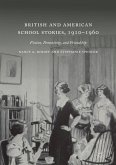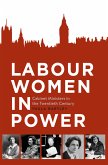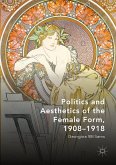This book examines Mary Ward's distinctive insight into late-Victorian and Edwardian society as a famous writer and reformer, who was inspired by the philosopher and British idealist, Thomas Hill Green. As a talented woman who had studied among Oxford University intellectuals in the 1870s, and the granddaughter of Dr Arnold of Rugby, Mrs Humphry Ward (as she was best known) was in a unique position to participate in the debates, issues and events that shaped her generation; religious doubt and Christianity, educational reforms, socialism, women's suffrage and the First World War. Helen Loader examines a range of biographical sources, alongside Mary Ward's writings and social reform activities, to demonstrate how she expressed and engaged with Greenian idealism, both in theory and practice, and made a significant contribution to British Society.
Dieser Download kann aus rechtlichen Gründen nur mit Rechnungsadresse in A, B, BG, CY, CZ, D, DK, EW, E, FIN, F, GR, HR, H, IRL, I, LT, L, LR, M, NL, PL, P, R, S, SLO, SK ausgeliefert werden.
"This book's approach is undoubtedly original and eminently worth reading as both a way into the writing (and later life) of a remarkable woman and also a moving expression of Greenian idealism, its original nineteenth-century reception and its outcomes, as well as a coherent analysis of Ward with honesty and post-feminist critical balance for the contemporary reader." (Gillian Boughton, Modern Believing, Vol. 64 (4), 2023)
Es gelten unsere Allgemeinen Geschäftsbedingungen: www.buecher.de/agb
Impressum
www.buecher.de ist ein Internetauftritt der buecher.de internetstores GmbH
Geschäftsführung: Monica Sawhney | Roland Kölbl | Günter Hilger
Sitz der Gesellschaft: Batheyer Straße 115 - 117, 58099 Hagen
Postanschrift: Bürgermeister-Wegele-Str. 12, 86167 Augsburg
Amtsgericht Hagen HRB 13257
Steuernummer: 321/5800/1497
USt-IdNr: DE450055826
Bitte wählen Sie Ihr Anliegen aus.
Rechnungen
Retourenschein anfordern
Bestellstatus
Storno









